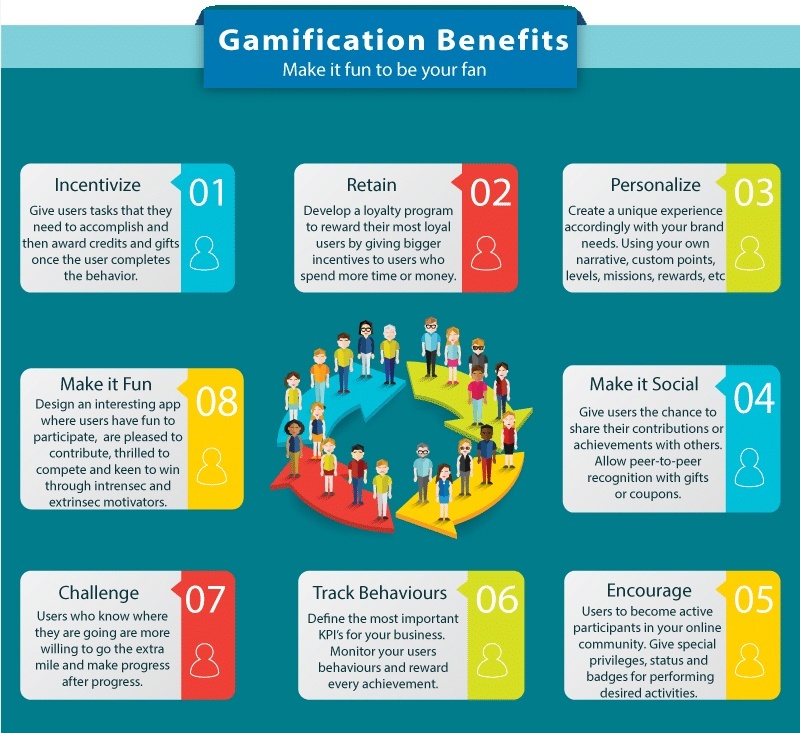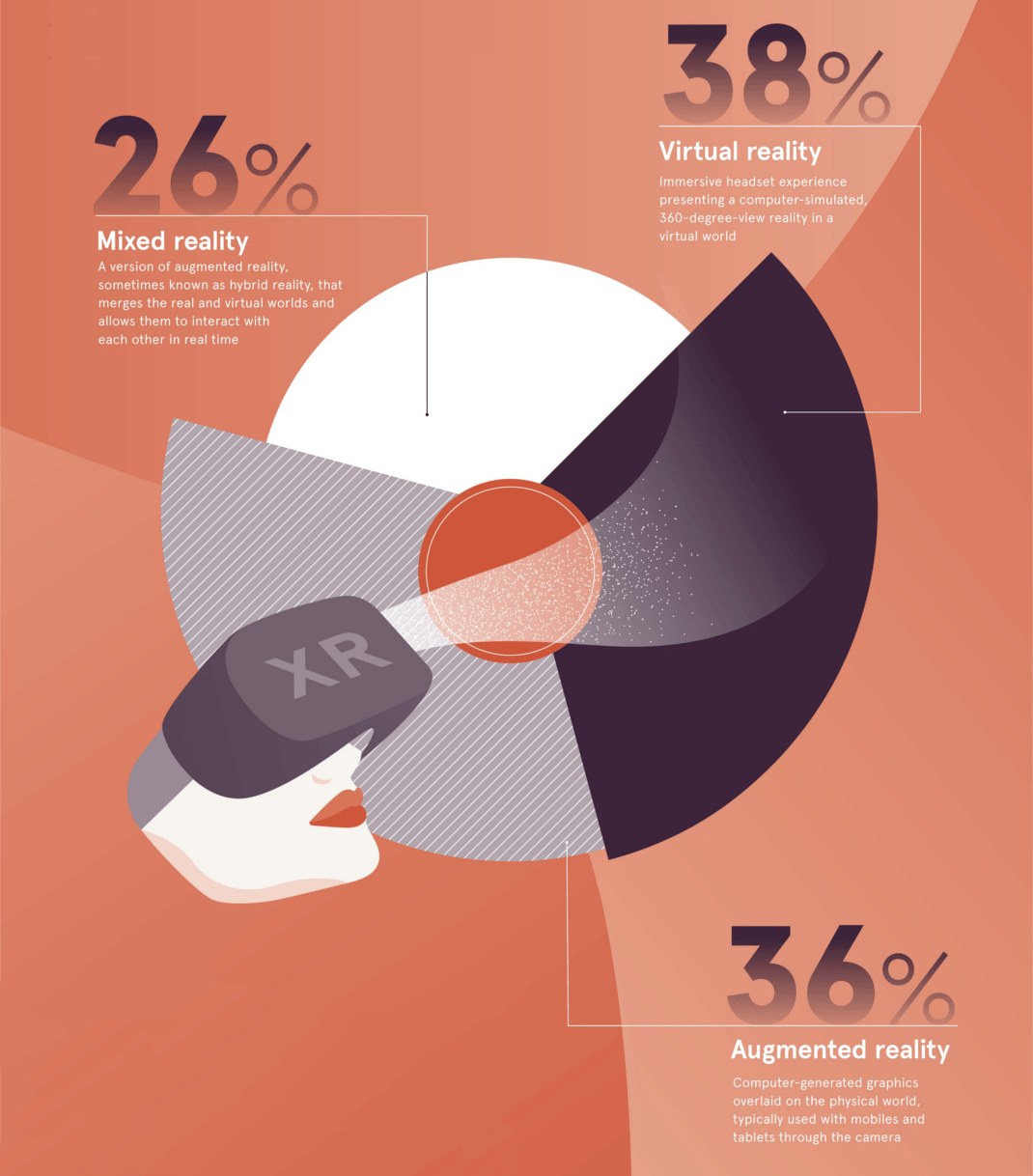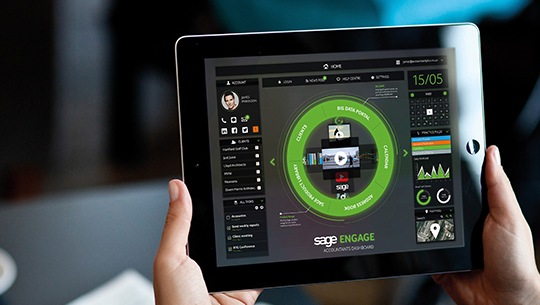Businesses in the modern age are relentless in their pursuit of anything that will give them an edge over their competitors. To boost their profits, enterprises often look outward, focusing on how to make their services more accessible, appealing, and distinct to customers. However, some of them forget about the importance of growing the “internal” part of the business, too.
Looking for enterprise mobile app development services?
What is an Enterprise Application?
Various tools and strategies exist for boosting productivity, communication, and otherwise strengthening the internal half of a business, but the ones we want to focus on are mobile apps. Enterprise mobile applications are designed specifically for use within a business. While the business may have an external application for customers, a proprietary enterprise app will only be accessible (usually via login) to workers and used for entirely disparate purposes.
Types of Enterprise Applications:

1. Chat/messaging
2. Internal inventory and catalog
3. Employee education
4. HR operations
5. Supply Chain support
6. Feedback collection and tracking
7. Email campaign management
8. Business analysis and planning
9. Secure exchange of information
10. Attendance and work hour tracking
11. And many more…
With millions of mobile apps available today, there is no doubt that the limits of what an app can do are only limited by the device it runs on and the creativity of its developer. That is to say, the list above is just a preview of a bigger picture that includes thousands of programs used in imaginative and resourceful ways by companies all over the world.
What is Enterprise Mobile Application Development's Use for Business
Ever since companies first started developing enterprise mobile solutions with non-commercial uses, a multitude of potential benefits has been discovered. We would like to outline several of them with proven success in real-life use.
1. Curtailing employees’ reliance on social media
Social media is a productivity killer. Despite the efforts of many companies in limiting employees’ use of social media, it remains a major issue that requires a more thoughtful response than a ban or blocked access. Fortunately, one such solution was developed by the “To The New” company, which created a social network of its own.
The mobile program they built allows employees to communicate with each other, share content, and solve problems together. This just goes to show that the time and energy that employees spend on non-productive external media can be diverted towards productive and cooperative communication within a company collective.
2. Improving employee organization
Even with a well-structured and comprehensive corporate hierarchy, many companies face organizational issues when their employees have trouble finding each other at important times, or waste time asking for information that should be easy for all to find.
Apple, one of the biggest and most respected companies in the world, and a major enterprise application development company tackled organizational issues with a program called AppleWeb. AppleWeb reportedly helps workers find key information about each other, as well as learn about happenings in the workplace and services that make their work/life easier.
3. Strengthening cooperation between employees
Face-to-face communication and communication through chat channels are the traditional choices for cooperation within a company, but they each have certain drawbacks. For instance, face-to-face cooperation involves verbal agreements whose details can be forgotten or later misinterpreted. With chats, there is an issue of important details and tasks being lost in a deluge of other less-important or irrelevant information.
On the other hand, enterprise software can be developed without these drawbacks by organizing information efficiently. For example, the Pacific Whale Watch Association in Canada created such a solution, which records and shares whale locations and related data to prevent its members and associated agencies from performing redundant work or acting based on outdated data.
4. Making professional training and education easy
Training employees is traditionally a time-consuming and difficult undertaking. Even after completing training, workers often require reinforcement of the knowledge and skills they picked up during training. To streamline the process and make it more appealing to the younger generation, Häagen-Dazs (a famous ice cream brand) commissioned the development of the HDScoops program. It was installed on iPads in thousands of stores and contained various educational videos, games, and quizzes.
With time, HDScoops boosted staff engagement and skills, leading to better customer satisfaction scores. When training courses are implemented on such platforms, there is no need to purchase expensive equipment or physical literature because the platform simulates the same things and is accessible on many gadgets at a time.
5. Boosting workflow efficiency
Workflow apps are not a novel invention. Jira, Trello, and Zapier are just a few well-known names in this niche, yet they are general-use products, intended to fit a broad template of company needs and workflow. They can help unravel even the most tangled workflows and craft them into something more efficient, but business owners sometimes complain about certain features being unavailable which would boost their productivity even more. To best tailor workflow software to your company’s specific needs, peculiarities, and operating style, building it for yourself is one of the smartest things to do.
This was demonstrated by the VMware company, which developed a solution known as vApprove. vApprove was built to handle a wide variety of managerial tasks, and was so successful in what it did that VMware made a spinoff of it called Mobile Flows, and marketed it to companies all over the world. In similar fashion, many of the workflow solutions available today started as exclusive enterprise products.
6. Problem-solving through feedback
When a company is doing something wrong or facing a problem, it can take quite some time to acknowledge and diagnose the problem. Usually, this is because issues are brought up during rare meetings, conference calls, or when the results of a certain endeavor come in. With the help of a mobile solution, the process can be streamlined: users submit feedback and offer suggestions, they are all collected, and a decision is made.
A fine example of this was demonstrated by Swiss Re, an insurance company whose workers were concerned by the substantial carbon footprint being left by the company. Sure enough, an internal mobile program was built to help the workers carpool, cutting their total emissions and transportation costs. In another example, the Accenture company streamlined the process of performance tracking discussion in their corporate hierarchy through a home-made solution, where managers and their workers effortlessly relay feedback.
Gamification + Mobile Apps = A Match Made in Heaven

When we think of apps, we often divide them into 2 categories – 1) those that we use to do something (communicate, learn, work, navigate, etc.) and 2) games. As for gamification, this is a strategy used in business to add game elements and mechanics to everyday processes and work tasks. It is like a combination of the two app categories – both functional and entertaining, making it a perfect fit for use in mobile apps.
Implementing gamification into work processes can have very positive implications for a business. For example, when employees use an app to perform some work tasks, they are just carrying out a routine. However, if the program gives them rewards upon completing certain tasks (e.g. gold stars or points), it will feel more like a game to them than a routine task, and they will be much more motivated to complete it well.
Another major benefit is the ability of gamified enterprise applications to teach staff and encourage their professional growth. Knowledge is best taken in when it is presented in an exciting and dynamic way, preferably with more visual elements than just text, so gamification is a great fit when it comes to training employees and shaping certain behaviors.
As a testament to the success of this approach, we can mention the Fruit Procurement app. It was developed for a fruit supplier company, and tailored to workers who performed fruit transportation and delivery. It featured colorful animations, enticing rewards, and a competitive rating system. Needless to say, it was a big success, lowering the rate of fruit loss, making deliveries faster, and catching the interest of new suppliers.
The role of AR in Enterprise Mobile Apps
Augmented reality is one of the biggest technologies shaking up the world of mobile applications nowadays. AR uses a digital interface (for example, a pair of smartglasses or a smartphone) to display the user’s surroundings with digital elements overlaid.

Beyond the entertainment value, AR allows people to visualize different situations and scenarios in a way that is much more engaging than looking at a set of charts, illustrations, or rendered sequences. This benefit, sweetened by the fact that billions of people own a smartphone, makes it easy to see why AR mobile applications have big potential for enterprises.
The power of AR in Mobile has already been leveraged to build hundreds of enterprise programs, including Program-Ace’s Aerial Scouting Cloud Platform. This is a product tailored to farming businesses, and involves aerial surveillance of crops by drone. After each round of surveillance, the data is transmitted to the program and analyzed to find crop damage and analyze the state of the fields.
The AR aspect of it involves visualizing the fields and simulating the effects of various management decisions on the crops. This led to a vast improvement in damage assessment, lowered surveying costs by up to 5%, and substantially sped up the farmers’ insurance claim process.
Challenges, Trends, and Outlook for Business Mobile App Development

Developing a mobile application is no easy task, usually requiring a sizeable team of developers and a timeframe of many months (and sometimes years). These factors contribute to high costs (typically tens of thousands of dollars), which many companies are reluctant to spend, especially when the business is small. Furthermore, while workers at tech companies tend to easily master the use of new apps, workers in other industries (especially people of the older generation) can find these mobile solutions confusing and difficult to work with.
Speaking about trends among enterprises, the use of mobile solutions is clearly on an upward trajectory. As it stands, more and more companies are investing in the development of mobile apps for enterprise applications, and the number of enterprise apps is growing by the thousands each year. Some companies are even building entire app stores for internal purposes. Giant companies like Google and Facebook have set an example for others to follow with their home-built solutions, and it is only a matter of time before the majority of companies join them.
How are Enterprise Mobile Apps Developed?
As we mentioned previously, traditional mobile development requires multiple developers, but this is hardly all. To begin with, a standard enterprise mobile developer will need coding experience and knowledge of the Android/iOS platforms, if your product will be running on them. Objective-C and Swift are the two coding languages used for iOS development, while Android is traditionally built on Java and Kotlin. Granted, there are app-building programs that do not require experience in coding or design, but they do not offer the wide range of functionality needed to satisfy most business requirements.
Apart from the coding part, you may also need artists, UI/UX designers, QA engineers, and several other key specialists to bring everything together. The process involves three basic stages – planning, development, testing, with the development stage customarily taking the most time.
Finding an Enterprise Mobile App Development Company
As we have outlined, a lot of work goes into making an internal app for your business, but the rewards certainly make it worth it. Most companies do not have a team of developers on hand to build mobile software, so they either expand their staff or hire external developers to assist with the project. If you are considering such services, you will find that there are thousands of developers and outsourcing companies offering their services, yet few of them will be a good fit for your project.
Program-Ace is a research & development company with over 26 years of experience, creating solutions both in major fields like mobile software and games, as well as more niche fields like enterprise solutions, AR/VR/MR, gamification, and digital twins. We understand the needs of enterprises from the small to the big, and will be more than capable of developing tools that will integrate seamlessly with your work and operations. To discuss a project and how we can complete it together, feel free to reach out to us at any time.






















